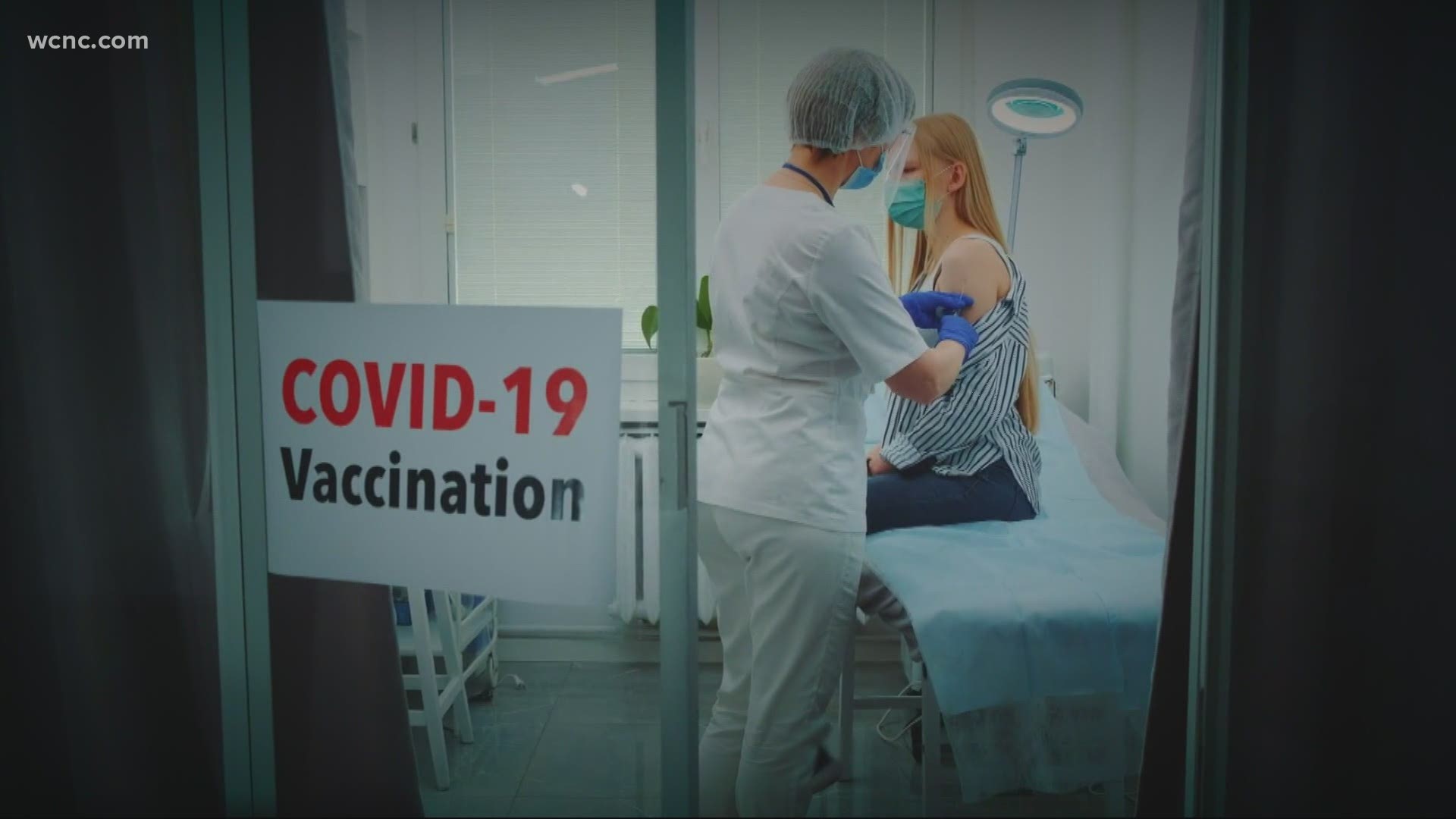CHARLOTTE, N.C. — A COVID-19 shot is not a 100% guarantee against getting sick with the virus. So, are there ways to test if the shot worked for you?
There are antibody tests on the market, and many blood banks are even screening donors for coronavirus antibodies when they donate, but how much can a person infer from those results?
Throughout the vaccine rollout, some have come forward after their shots, noting tangible results on antibody tests.
Dr. Arin Piramzadian, Chief Medical Officer for StarMed, was one of those people.
"It's the most incredible feeling in the world," Piramzadian said in January, upon getting the COVID-19 vaccine and showing antibodies on a subsequent test. "I've been scared for the last nine months, that I was going to get sick, that I was going to get my family sick."
But should people who are fully vaccinated, then still get a negative antibody result, be concerned?
THE QUESTION
If you get a negative antibody test but got the COVID-19 vaccine, does it mean the shot didn't work?
THE ANSWER
No, a negative antibody test does not necessarily mean a person's COVID-19 vaccine did not work, or that a person does not have immunity to the virus.
"You can have a negative antibody test but actually have mounted an immune response," Dr. Linda Bell, state epidemiologist for South Carolina's Department of Health and Environmental Control, said.
Bell and other health experts explain there are a few reasons why.
"If you get a commercially performed antibody test, it could be looking for a different antibody than the one the vaccine was worked to stimulate in your body," Bell said.
Dr. David Priest, an infectious disease specialist with Novant Health, said it is also because immune responses are complex.
"Remember: an immune response is more than just antibodies. It's T cell response and other parts of your immune system," Priest said.
However, Priest said that does not mean a more sophisticated test couldn't be useful in our future.
"There are newer laboratory tests coming that may allow us to measure T cell response, something beyond antibody response, and we may find that, down the road, we will check antibodies and decide you need another series of vaccine," Priest said. "We do that with some other infectious diseases, for example, Hepatitis B."
Have a relative or friend in another state and want to know when they can get vaccinated? Visit NBC News' Plan Your Vaccine site to find out about each state's vaccine rollout plan.

